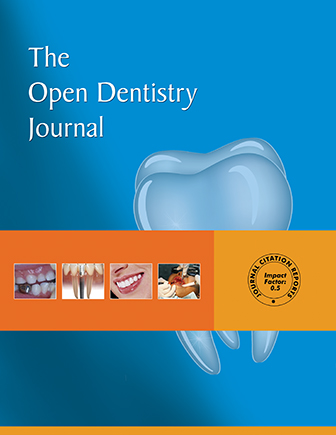All published articles of this journal are available on ScienceDirect.
TNFA and IL10 Gene Polymorphisms are not Associated with Periodontitis in Brazilians
Abstract
IL-10 and TNF-α are cytokines that have complex and opposing roles in the inflammatory responses. G/A polymorphisms at position –1082 of IL10 and –308 of TNFA genes have been reported to influence the expression of IL-10 and TNF-α, respectively. The aim of this study was to investigate the association between the IL10 (-1082) and TNFA (- 308) gene polymorphisms with different clinical forms or severity of periodontitis in a sample of Brazilian individuals. DNA was obtained from oral swabs of 165 Brazilian individuals, which were divided into three groups: individuals with chronic periodontitis, aggressive periodontitis and individuals without clinical evidence of periodontitis. Evaluation of IL10 and TNFA polymorphisms was performed by RFLP analysis. Statistical analysis of data was performed using the χ2 likelihood ratio and Fisher`s exact test. No significant differences in the genotype and allele distribution of either IL10 or TNFA were observed among individuals with different clinical forms or with different degrees of severity of periodontitis. Moreover, combined analysis of IL10 and TNFA polymorphisms did not show any association with periodontal status. As conclusion, the IL10 and TNFA gene promoter polymorphisms investigated are not associated with different clinical forms of periodontitis or with severity of the disease in the Brazilian population polymorphisms.


